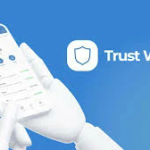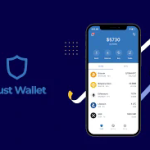# Is Trust Wallet Legit? A Comprehensive Analysis
## Introduction to Trust Wallet
Trust Wallet emerged as a popular mobile wallet solution for cryptocurrency enthusiasts, aiming to provide a simple yet secure way to manage digital assets. Launched in 2017 and acquired by Binance in 2018, Trust Wallet has gained traction due to its user-friendly interface and robust security measures. This article delves into the legitimacy of Trust Wallet, examining its features, security protocols, regulatory compliance, user reviews, and more.
## Understanding Cryptocurrency Wallets
### The Role of Wallets in Cryptocurrency
Before assessing Trust Wallet’s legitimacy, it is important to understand the types of cryptocurrency wallets available. Cryptocurrency wallets can typically be categorized into two main types: hot wallets and cold wallets.
– **Hot Wallets**: These wallets are connected to the internet and provide convenience for frequent transactions. Hot wallets are ideal for day-to-day trading but are more susceptible to hacking.
– **Cold Wallets**: Cold wallets store cryptocurrencies offline, making them more secure against online threats. However, they can be less convenient for active trading.
Trust Wallet falls into the hot wallet category but boasts features aimed at enhancing security.
### Types of Wallets Offered by Trust Wallet
Trust Wallet supports a variety of digital assets, including ERC20, BEP2, and BEP20 tokens. It allows users to manage a diverse portfolio, facilitating trading across multiple platforms. Furthermore, Trust Wallet enables in-app purchases of cryptocurrencies, decentralized applications (DApps), and staking options.
## Key Features of Trust Wallet
### User-Friendly Interface
One of the most significant advantages of Trust Wallet is its intuitive user interface. Designed with simplicity in mind, even those new to cryptocurrency can easily navigate the app. The wallet provides seamless access to frequently used features, such as sending, receiving, and storing crypto assets.
### Security Protocols
Security is a paramount concern in the cryptocurrency space. Trust Wallet employs several security measures to protect users’ funds:
– **Private Keys**: Trust Wallet allows users to retain control of their private keys, which are stored locally on the user’s device rather than on centralized servers. This decentralization grants users full ownership of their crypto assets.
– **Seed Phrase**: Upon creating an account, users are given a recovery phrase, comprising 12 or 24 words. This phrase serves as a backup and enables users to recover their wallet if their device is lost or compromised.
– **Biometric Authentication**: Trust Wallet offers built-in biometric authentication (fingerprint or facial recognition) for added security when accessing the wallet.
### DApp Integration
Trust Wallet distinguishes itself through its integration with decentralized applications (DApps). Users can explore, access, and interact with a wide range of DApps directly from the wallet, including decentralized exchanges (DEXs), games, and various financial services. This capability enhances user experience and promotes the adoption of decentralized finance (DeFi).
### Cross-Platform Compatibility
Another noteworthy characteristic of Trust Wallet is its compatibility across multiple devices and platforms. While primarily a mobile app for iOS and Android, Trust Wallet also allows users to access their assets through Web3 browsers. This flexibility caters to a broader audience and accommodates users who prefer different device types.
## Analyzing Trust Wallet’s Security Measures
### Vulnerability to Attacks
Despite its robust security features, Trust Wallet is still subject to potential vulnerabilities, primarily due to its nature as a hot wallet. Hackers continuously devise new methods to exploit weaknesses in digital wallet software. Though Trust Wallet regularly updates its app to patch vulnerabilities, users must exercise personal security practices, such as avoiding phishing scams and maintaining device security.
### Trust Wallet vs. Other Wallets
When comparing the security of Trust Wallet with that of other wallets, users may find a range of opinions. Hardware wallets, such as Ledger and Trezor, provide an even higher level of security by storing private keys offline. However, these require an upfront investment and are less convenient for frequent trading. For users seeking balance between security and accessibility, Trust Wallet presents a favorable option.
## Trust Wallet’s Regulatory Compliance
### Understanding Regulations in the Crypto Space
The cryptocurrency landscape is constantly evolving, and regulations differ widely across countries. As digital currencies gain mainstream acceptance, regulatory scrutiny increases, necessitating compliance from wallet providers.
### Trust Wallet’s Compliance
Though Trust Wallet acts primarily as a non-custodial wallet, ensuring users maintain control over their private keys, it still falls under the umbrella of regulatory considerations. Binance, the parent company, adheres to compliance standards set by various jurisdictions. Trust Wallet does not require personal information for basic wallet usage, but additional services, such as purchasing cryptocurrencies through the app, may necessitate verification to comply with Know Your Customer (KYC) regulations.

## User Reviews and Community Feedback
### Positive User Experiences
Numerous users commend Trust Wallet for its ease of use and diverse feature set. Many appreciate the wallet’s support for multiple cryptocurrencies and tokens, along with its seamless DApp integration. Users have also highlighted the wallet’s strong security features, such as biometric authentication and local key storage.
### Negative Feedback
Conversely, some users have expressed concerns regarding customer support and occasional app glitches. Some report difficulties in reaching the support team for assistance and experience frustrations with wallet recovery processes. Additionally, as the field of crypto wallets is competitive, users might find themselves comparing Trust Wallet against other wallets with differing features.
## Conclusion: Is Trust Wallet Legit?
### Evaluating Trust Wallet’s Legitimacy
Through comprehensive analysis, it is apparent that Trust Wallet is indeed a legitimate cryptocurrency wallet. It offers a multitude of features catering to both novice and experienced users while implementing substantial security measures. The wallet’s association with Binance adds a layer of credibility, and user feedback generally reflects satisfaction with the service provided.
### Best Practices for Trust Wallet Users
While Trust Wallet demonstrates a strong commitment to security and user experience, it is crucial for users to adhere to best practices for safeguarding their digital assets:
1. **Use Strong Passwords**: Enhance wallet security with complex and unique passwords.
2. **Enable Biometric Authentication**: Utilize fingerprint or facial recognition for optimal protection.
3. **Backup Your Recovery Phrase**: Safeguard your seed phrase in a secure location to facilitate wallet recovery.
4. **Stay Updated**: Regularly update the app to benefit from security patches and new features.
5. **Exercise Caution**: Be vigilant against phishing attempts and suspicious links.
Overall, while no wallet can be deemed completely risk-free, Trust Wallet presents a solid option for individuals seeking a legitimate and user-friendly crypto wallet. As the cryptocurrency landscape continues to evolve, Trust Wallet’s adaptability and innovation will be crucial in meeting user demands and maintaining its standing in the market.


